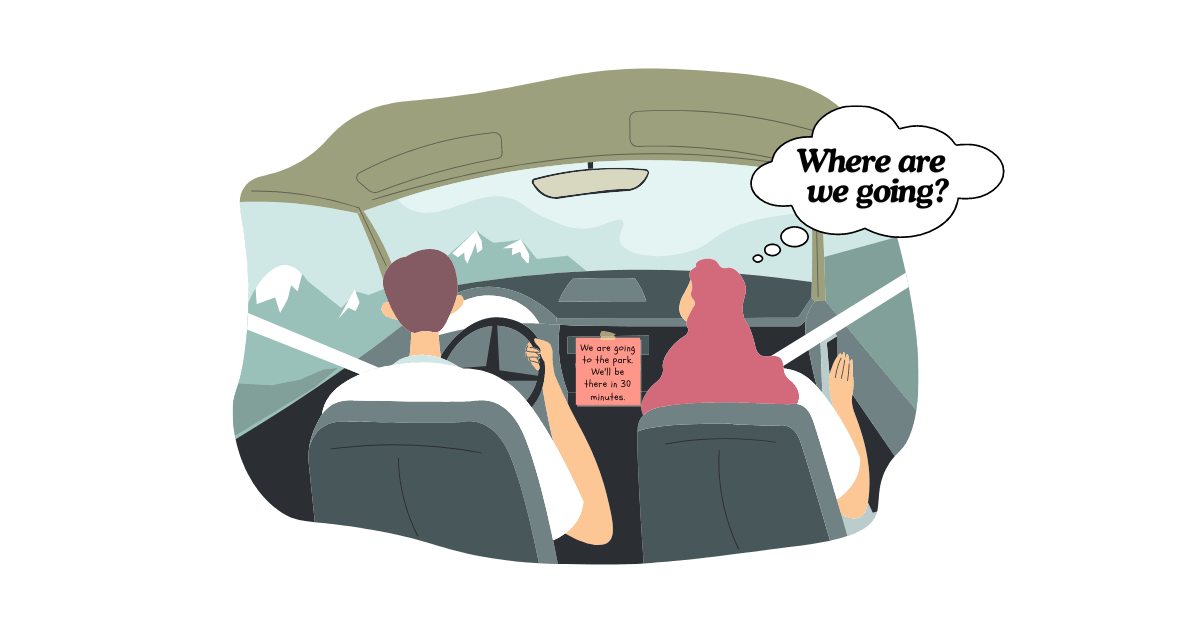Imagine getting into a car without knowing where you’re going or how long the drive will be. What questions would you ask to feel reassured? These are the same questions an Alzheimer’s patient might ask repeatedly.
Our mom, who has Alzheimer’s, often asks, “Where are we going?” over and over when she leaves familiar surroundings. My brother and I managed to stay patient, but our dad, who drove her the most, found it increasingly challenging.
We discovered a simple life hack in Lauren Aguirre’s book “The Memory Thief: The Secrets Behind How We Remember—A Medical Mystery”. The solution was to place a sticky note on the car dashboard that states the destination and travel time. Initially, we were skeptical. Could something so simple work?
A few days later, we got our answer when my brother tested the hack on a 3-hour drive. Before they left, he placed a sticky note on the dashboard and had our mom read it. When she asked, “Where are we going?” he simply pointed to the note. She read it and, to his surprise, didn’t ask again. Instead, spending the ride enjoying the music and in conversation.

This hack works because Alzheimer’s affects episodic memory, hindering patients from remembering recent events and leading them to repeat questions frequently. After all, they cannot remember recent answers. Sticky notes help engage the procedural memory system—routines and habits are more resistant to Alzheimer’s in its early to middle stages. By seeing and referring to the sticky note, our mom develops a habit of looking at it for answers, using this consistent external cue to compensate for her memory loss.
Now, we keep sticky notes and pens in all our cars. We also use sticky notes and notebooks to write answers to other repetitive questions. This life hack has empowered our mom to feel more in control and independent, reducing frustration and making our outings much smoother.
We hope this “sticky note” life hack helps your family stay as engaged and active as it has helped ours. We highly recommend The Memory Thief if you haven’t yet read it. It’s more than just a book; it’s a helpful guide, offering hope to anyone caring for a loved one with Alzheimer’s. It reminds us that there are plenty of ways to regain control, which is a great comfort.


